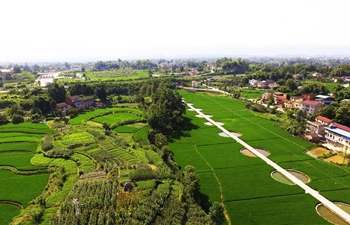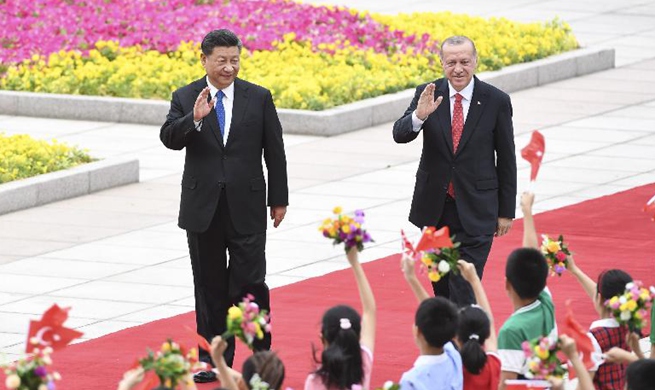by Xinhua writer Hu Tao
BEIJING, July 2 (Xinhua) -- China's burgeoning civil airports are eyeing digital and intelligent technologies to sustain continuous growth, according to China's civil aviation authorities.
Mega airports of China's major cities are generally reaching or closing to their capacity saturation points, according to the Civil Aviation Administration of China (CAAC).
It is even severe in those airports with annual passenger throughput at the 10-million level, greatly affecting the efficient and comfort flight experience of passengers.
"The digital and intelligent technologies are of great importance for major airports, bringing greater space for development and sustaining the safety operation of the industry," said Zhang Rui, deputy director of the airport department of the CAAC.
The CAAC is focused on creating safe, green, smart and human-oriented airports, with smart airports on the pivotal position.
In 2018, the total annual passenger throughput and flight movements of China's civil airports reached 1.26 billion and 11.08 million respectively, growing at an annual average of 11 percent and 19 percent over the past 10 years.
By the end of 2018, China had 235 civil airports, including 37 with at least 10 million passengers annually. Among which, 10 were at the 30 million level.
Amid the booming growth and market demands, some of the major airports have sprung into action by injecting new-tech into operations such as the safety management, passenger service as well as energy saving and emission reduction.
For example, the Beijing Capital International Airport has completed the test for an intelligent navigation system. Based on the intelligent technologies of facial recognition and big data, it will offer individualized services to passengers.
Currently, passengers depend mainly on guide boards or airport staff to locate routes to boarding gates. With the new system, they will receive flight and destination information, intelligent navigation to boarding gates and shop information in the airport.
Beijing Daxing International Airport will adopt multiple new technologies, such as self-check-in, facial recognition security checks, and radio frequency identification devices in baggage tracking.
This means that passengers could realize a paperless self-service airport experience during the whole process from check-in and security checks to boarding.
All of these moves are anticipated to power the new airport of Beijing to be smarter and more efficient, according to the CAAC.
New technologies such as artificial intelligence and big data are expected to inject power to Chinese airports. Meanwhile, it represents great opportunities in both technology and business fields.
The CAAC has selected 23 airports nationwide as demonstration projects creating safe, green, smart and human-oriented airports. Among which, 16 are smart airports.
China is now the world's second largest civil aviation market. It is forecast to become the largest around 2025, according to the International Air Transport Association.
















